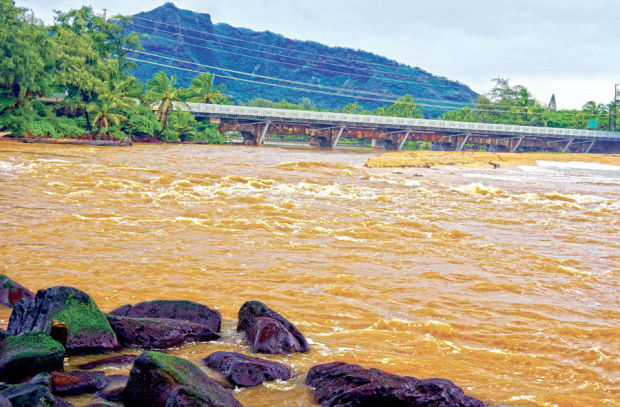LIHUE — Some Kauai residents are at odds over proposed changes to state Department of Health regulations that would prohibit new cesspools from being built and require existing ones to be upgraded when properties are sold. Proponents and state Department
LIHUE — Some Kauai residents are at odds over proposed changes to state Department of Health regulations that would prohibit new cesspools from being built and require existing ones to be upgraded when properties are sold.
Proponents and state Department of Health officials say the changes are overdue and could ultimately prevent valuable resources, including ground water, sensitive water sheds, streams and oceans, from being contaminated.
Those who oppose the changes worry that requiring upgrades to current cesspool systems may place a financial burden on property owners.
“I think this proposal is very noble and honorable in that it is trying to preserve water quality integrity, but it is also targets rural communities, especially on the neighbor islands,” Mark Tanaka, executive vice president at Kauai Realty, Inc. in Lihue, said during a public meeting Thursday at the Kauai District Health Office.
Hawaii is the only state in the nation that still allows construction of new cesspools.
“Cesspools are little more than holes in the ground, an outmoded 15th century technology, that discharge raw, untreated human waste directly into the subsoil,” state Department of Health officials wrote in an Aug. report.
DOH officials say there are about 90,000 cesspools in the state — about 50,000 on the Big Island, 14,000 on Kauai, 12,000 on Maui, 11,000 on Oahu and more than 1,400 on Molokai.
“Generally, while we support the environmental goals of the proposed changes, we are concerned about the economic impacts to our residents,” County Engineer Larry Dill wrote in an email.
Carl Berg, vice chair for the Surfrider Foundation on Kauai and Blue Water Task Force coordinator, said he has tested the water quality around rivers, streams and oceans on the island and has seen the effectiveness of replacing cesspools.
When cesspools were replaced at Waioli, Hanalei and Black Pot beach parks, as well as properties along Waioli and Waipa streams, water quality tests conducted near some of those areas found a reduction in the amount of harmful bacteria found in human sewage, Berg said.
“Here, on Kauai, we have a real problem in that so many of our highly valued homes, especially the really high-priced ones, are along our beaches and waterways,” Berg said. “I would basically state that almost all of those with cesspools are contributing to the nutrient and bacteria contamination not counting, also, the personal care products, the drugs and everything else that goes down the toilet.”
Some residents say DOH should reconsider some of the proposed changes.
Kauai Board of Realtors President Lee Morey said she and other real estate officials are concerned that sewer connections or upgrades of existing cesspools to a septic system would be required within 180 days after the sale of a property.
Since there are “very few sewers on Kauai,” most people would have to upgrade their cesspools to septic systems. Doing so, however, could take years, since there are thousands of cesspools on Kauai.
“To do a point of sale change out is really not practical — it’ll have inadvertent repercussions with lenders and homeowners,” Morey said. “We need time to digest this, disclose it, and make sure that we can negotiate with a buyer or a seller to figure how we can best address this. There will also have to be somebody to police this action.”
Department of Health officials, in their report, wrote that “requiring cesspool upgrades when property is sold makes sense because the cost of the upgrade can be shared between the buyer and seller at a time when sellers, with proceeds from the sale, are better able to afford upgrading costs and buyers, who are usually borrowing already for their purchase, may obtain additional financing for eliminating a cesspool.”
Tanaka disagreed.
“If you’re a seller, you may need to sell a property and that would pose a financial hardship,” Tanaka said. “If you’re a buyer and trying to buy your first property, you’re just barely trying to save the money for the down payment more less trying to budget for costs of the septic system.”
A public meeting on this proposal will be held from 5 to 7:30 p.m. on Monday in the Kauai District Health Office Conference Room in Lihue.


